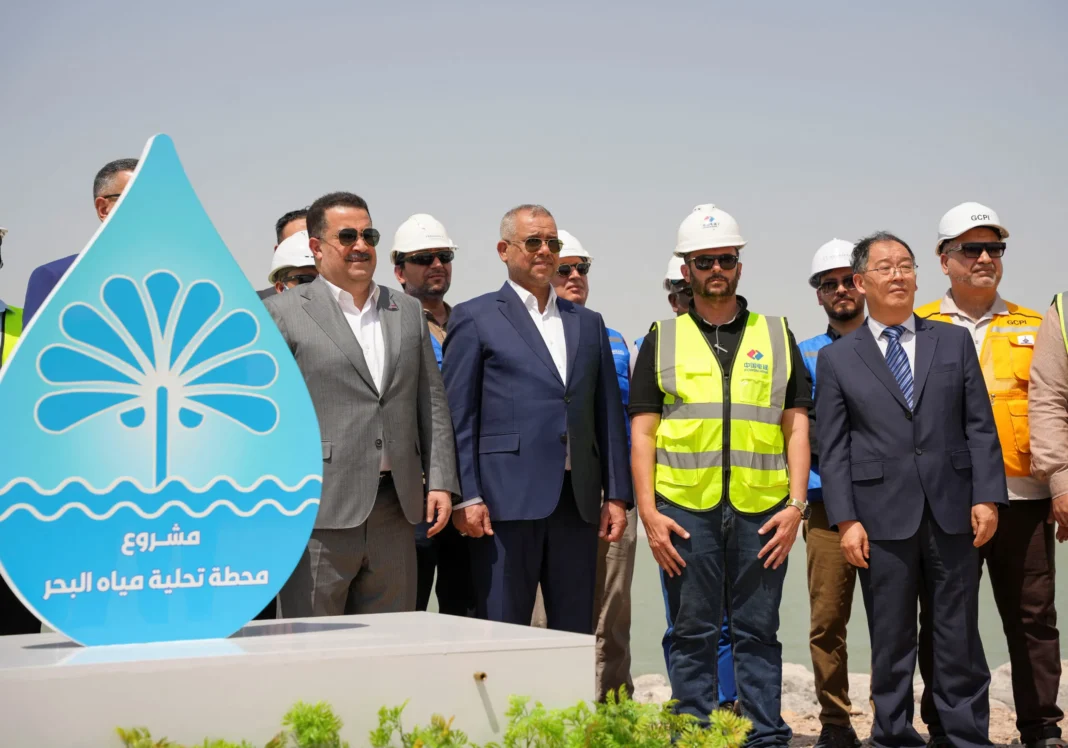Iraq officially began construction on a massive seawater desalination project near the Grand Faw Port in Basra. This major seawater desalination project aims to ease the region’s long-standing water crisis and provide clean drinking water to millions. The government believes this initiative will fix the country’s chronic water shortages caused by reduced rainfall and shrinking river flows.
The seawater desalination project will process one million cubic metres of seawater daily. It will supply clean water to more than 4 million people in Basra. The facility includes three separate desalination lines, each with a daily capacity of 335,000 cubic metres.
The plant also includes a reverse osmosis treatment system and 12 water storage tanks. These reservoirs will collectively store up to 1 million cubic metres of treated water. A 240-kilometre pipeline will deliver water to nine key distribution stations throughout the governorate. The system will run on a new 300 MW power plant built specifically for the project.
Previously, delays occurred due to changes in ministry control. Now, the Basra Governorate oversees the project entirely. This transfer allows for smoother planning and faster execution. The Prime Minister declared this project a top priority for Iraq’s public service goals.
To execute the plan, Iraq partnered with Al-Rida Group and China’s Power China. These companies bring advanced engineering and water technology. During construction, temporary desalination units will be placed around Basra to meet immediate needs.
The project will also create 3,500 jobs for local workers. These new roles will support families, increase income, and reduce unemployment. At the same time, infrastructure growth will encourage wider economic activity.
Economic benefits stretch far beyond employment. Clean water boosts agriculture, supports local businesses, and strengthens public health. The project will also help reduce water dependency on other provinces and neighboring countries.
Iraq is shifting toward long-term, sustainable water solutions. This step follows years of falling water levels in the Tigris and Euphrates. Desalinating seawater gives the country a reliable, modern way to meet growing demand.
Government leaders view this project as essential for future growth. Plans already include expansion options. Nevertheless, these upgrades will help provide water to nearby regions as demand increases.





